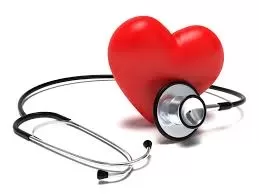A stroke occurs when the blood supply to part of the brain is interrupted or reduced, depriving brain tissue of oxygen and nutrients. Within minutes, brain cells begin to die. A stroke is a medical emergency, and prompt treatment is crucial, and symptoms of stroke are easily traced through few techniques. Early action can minimize brain damage and improve the chances of a good recovery.
A heart attack occurs when the blood flow to the heart is blocked, usually by a blood clot. The heart muscle begins to die when it doesn’t get enough oxygen-rich blood. A heart attack is also a medical emergency, and prompt treatment is crucial. Early action can minimize heart damage and improve the chances of a good recovery.
Symptoms of a Stroke
The most common symptoms of a stroke include:
- Sudden numbness or weakness in the face, arm, or leg, especially on one side of the body
- Sudden confusion, trouble speaking, or understanding speech
- Sudden trouble seeing in one or both eyes
- Sudden trouble walking, dizziness, loss of balance or coordination
- Sudden severe headache with no known cause
Other symptoms of a stroke may include:
- Nausea or vomiting
- Trouble swallowing
- Seizures
- Vision changes
- Loss of consciousness
If you experience any of these symptoms, call 911 immediately.
Precautions from Heart Attack
The most important precaution from a heart attack is to seek medical attention immediately if you experience any symptoms. Other precautions you can take to reduce your risk of a heart attack include:
- Controlling your blood pressure: High blood pressure is a leading risk factor for heart attack. If you have high blood pressure, work with your doctor to control it.
- Managing your cholesterol: High cholesterol levels can also increase your risk of heart attack. Eat a healthy diet, exercise regularly, and take medications as prescribed by your doctor to manage your cholesterol.
- Quitting smoking: Smoking is a major risk factor for heart attack. If you smoke, quitting is the best thing you can do for your heart health.
- Maintaining a healthy weight: Being over weight can increases your risk of heart attack. Eat a healthy diet and exercise regularly to maintain a healthy weight.
- Exercising regularly: Exercise helps to strengthen your heart and improve your overall cardiovascular health. Aim for at least 30 minutes of moderate-intensity exercise most days of the week.
- Eating a healthy diet: A healthy diet for heart health includes plenty of fruits, vegetables, and whole grains. It also limits saturated and unhealthy fats, cholesterol, and sodium.
Additional Tips
Here are some additional tips for preventing a stroke or heart attack:
- Know your risk factors: Talk to your doctor about your risk factors for stroke and heart attack. Knowing your risk factors can help you to develop a plan to manage them.
- Get regular checkups: See your doctor for regular checkups and screenings. This can help to identify any health problems early, when they are most treatable.
- Take medications as prescribed: If you have been prescribed medications for conditions such as high blood pressure, high cholesterol, or diabetes, it is important to take them as prescribed by your doctor.
- Manage stress: Stress can increase your risk of stroke and heart attack. Find healthy ways to manage stress, such as exercise, relaxation techniques, and spending time with loved ones.
If you have any questions or concerns about stroke or heart attack, talk to your doctor.
Conclusion
Stroke and heart attack are both serious medical conditions, but they are preventable. By taking steps to manage your risk factors and living a healthy lifestyle, you can reduce your risk of stroke and heart attack.
Thanks for visiting Gymbag4u.com
You may also love reading our following articles on heart diseases & healthcare. Tips for Heart Health – GymBag4U and How to Reduce Your Risk of Heart Disease – GymBag4U and Preventing Heart Disease Essential Precautions, You Need to Take (gymbag4u.com)

